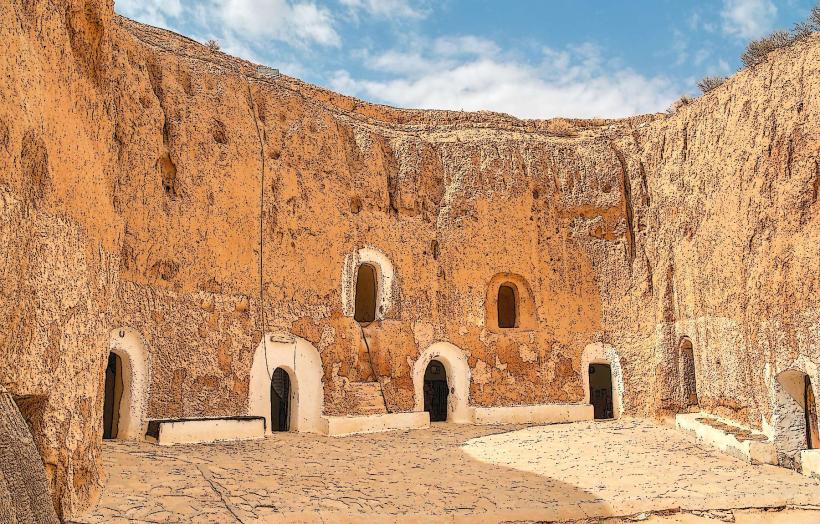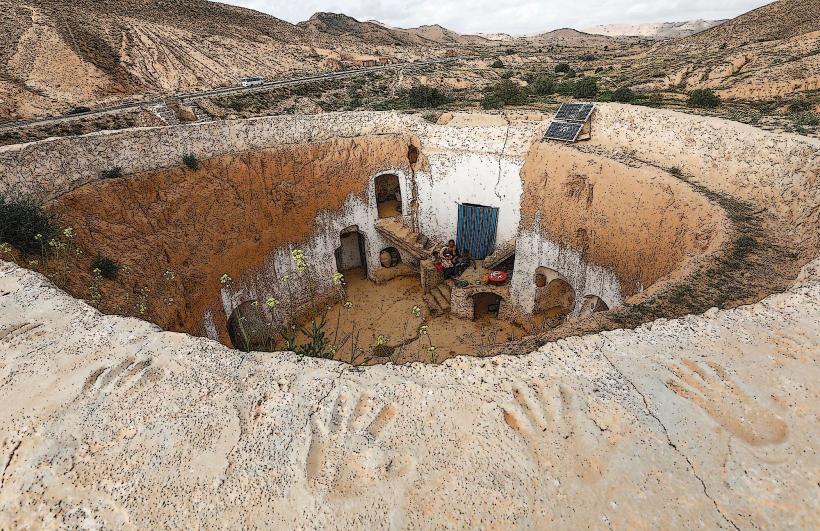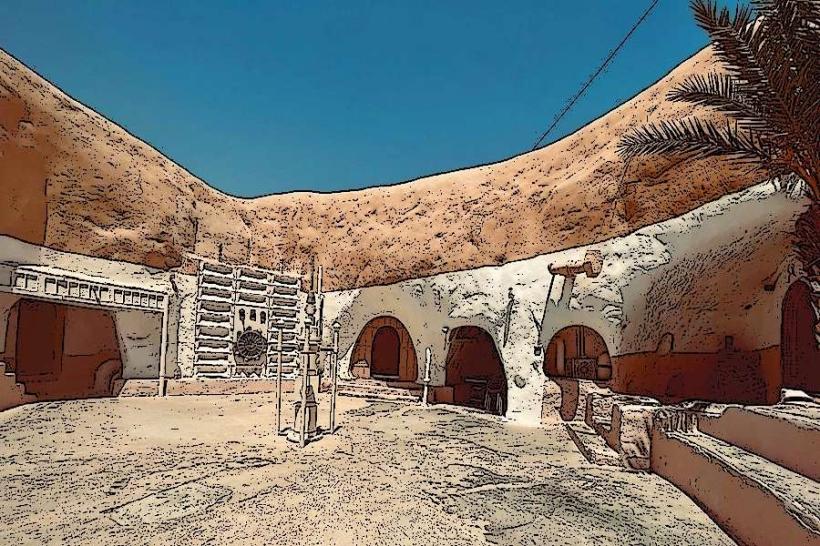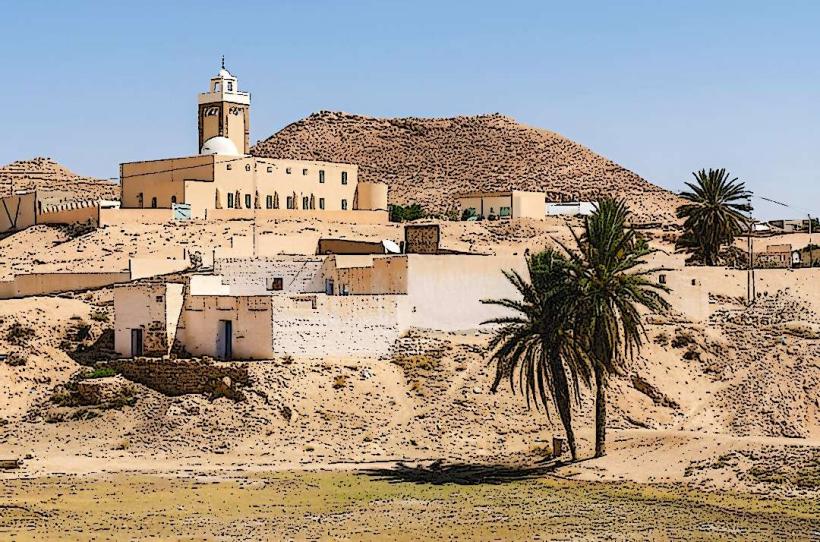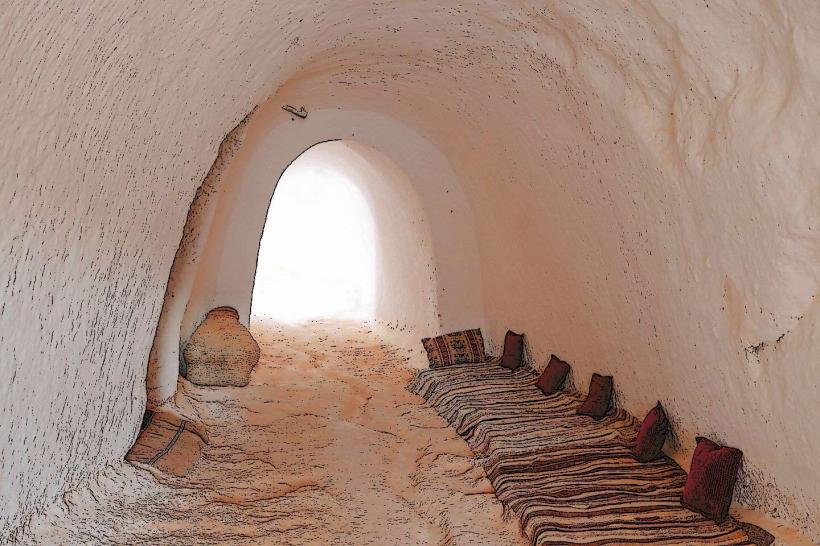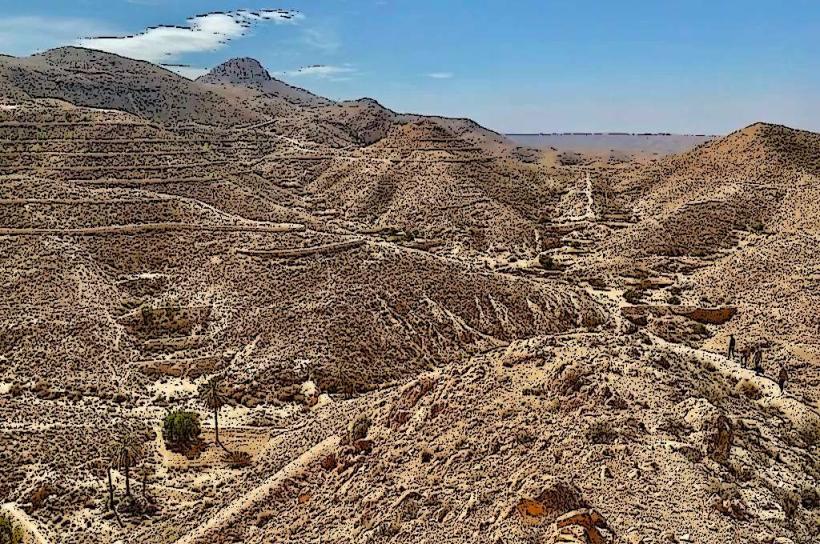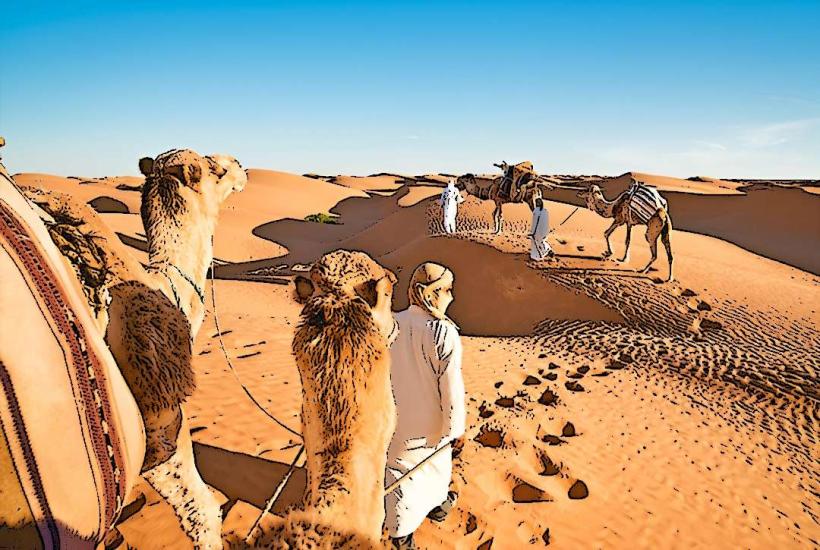Information
Landmark: Matmata MarketCity: Matmata
Country: Tunisia
Continent: Africa
Matmata Market, Matmata, Tunisia, Africa
The Matmata Market is a small but culturally significant local marketplace in the traditional Berber town of Matmata, Tunisia. While not large or urbanized like souks in Tunis or Sfax, the market serves as a central hub for commerce, social exchange, and local traditions. It reflects the daily life and rhythms of a rural Amazigh (Berber) community living in a semi-arid desert environment.
Location and Setting
The market is located in central Matmata, close to the modern part of the village, where the few paved streets, post office, and small hotels are situated. It's not a massive or permanent market hall, but more of a collection of stalls, open-air vendors, and small shops that serve the needs of the local population and curious tourists. The market is busiest in the morning and early afternoon, with vendors packing up before the desert heat peaks.
What You’ll Find at the Matmata Market
Despite its modest size, the market offers a wide variety of goods, reflecting both traditional Berber life and modern Tunisian influences:
1. Local Produce and Food
Dates, olives, pomegranates, and prickly pears-all regional staples.
Couscous grains, lentils, barley, and spices like cumin, harissa paste, and dried mint.
Locally made goat cheese, dried figs, and preserved lemons.
Seasonal vegetables and small amounts of desert-grown fruit.
Occasionally, fresh meat and poultry, often butchered in the village itself.
2. Berber Handicrafts
Handwoven rugs and kilims, made by local women using traditional looms.
Ceramics and pottery, often in earthy tones with Amazigh symbols.
Silver jewelry, including fibulae (traditional brooches), bracelets, and earrings.
Leather goods, such as sandals, belts, and small bags crafted from goatskin.
3. Everyday Items
Plastic containers, cooking utensils, textiles, and fabrics.
Clothing, both Western-style and traditional-such as the fouta (striped cloth wrap) and jebba (long tunic).
Mobile phones, batteries, cheap electronics, and other practical goods.
4. Tourist Souvenirs
With the increase in visitors due to the popularity of the Troglodyte Homes and Star Wars tourism, a small portion of the market caters to tourists:
Miniature replicas of troglodyte homes.
Hand-painted ceramics with desert motifs.
Bottled sand art, postcards, and Berber-themed trinkets.
Atmosphere and Experience
The Matmata Market is not polished or commercialized like tourist souks in large cities. It retains an authentic rural atmosphere, where locals speak primarily in Tunisian Arabic or the Tamazight (Berber) language. Bartering is common, and social interaction is part of the culture-shopping is also a time to chat, share news, and exchange stories.
While the market may not offer luxury goods, its value lies in its cultural authenticity and daily rhythms of local life. Visiting it provides insight into how the community sustains itself in an arid environment and how ancient traditions continue to influence daily commerce.
Practical Tips for Visitors
Morning is the best time to visit, as vendors begin packing up after midday.
Bring Tunisian dinars in small denominations-credit cards are not accepted.
Don’t hesitate to haggle, but do so politely; it’s part of the culture.
Ask permission before taking photos, especially of people.
If you're a visitor, showing interest in traditional crafts often leads to conversations and sometimes even home visits to workshops or troglodyte dwellings.
The Matmata Market is not a grand bazaar, but its simplicity, rooted in centuries of desert life, makes it one of the most genuine local markets in Tunisia.

